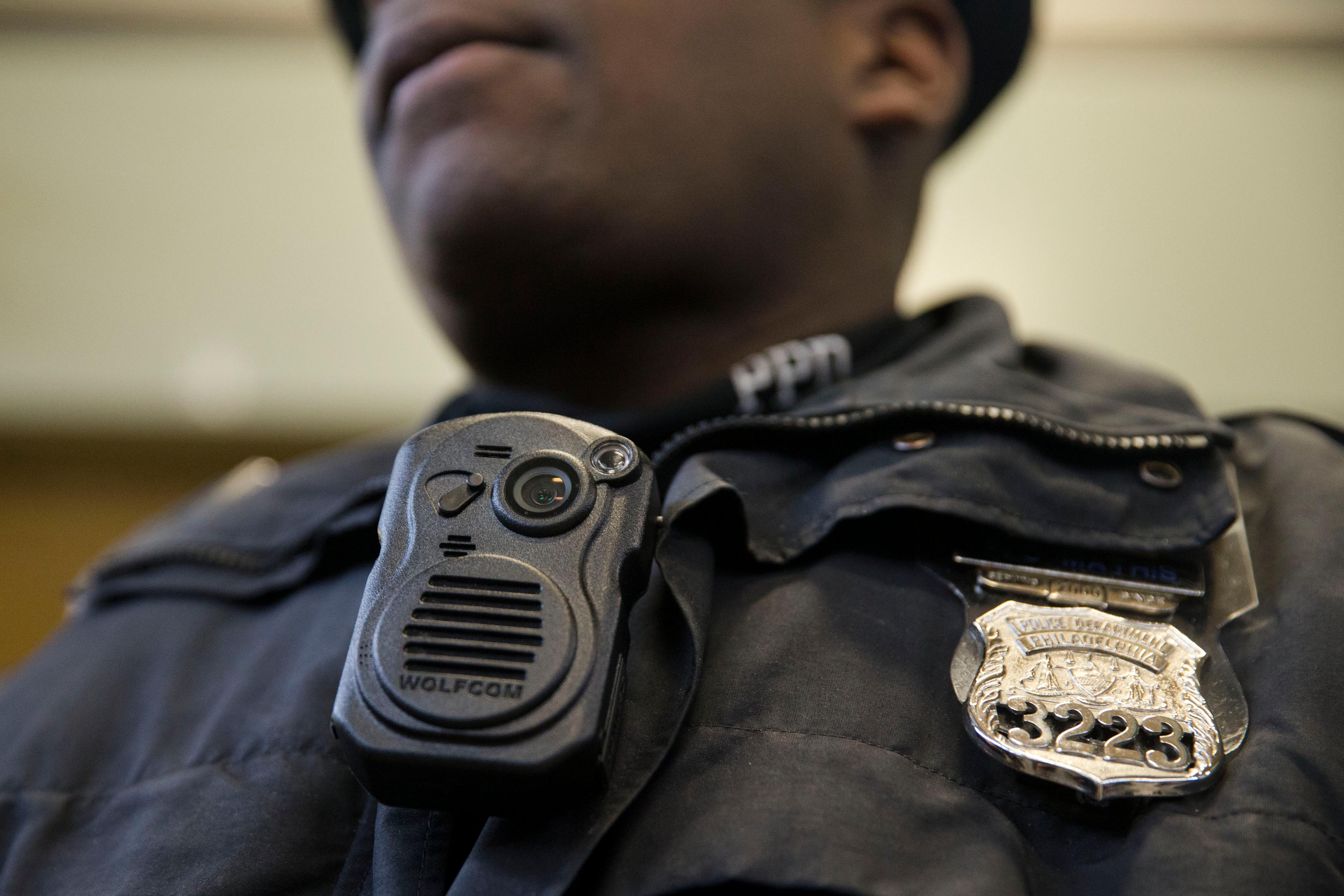
July 9 update: The Denver Police Department is now asking the city council for $6.1 million for its body camera program. We've updated our post accordingly.
***
Most of the time, we only hear about police and body cameras when something big happens; an officer-involved shooting in Trinidad on tape, video of a Federal Heights officer beating a suspect, Denver looking to invest $6.1 million in body-worn cameras.
But this emerging technology is all over Colorado, and whether we're talking about police or civilians, we're all trying to make sense of it.
Below, we've pulled together research, and bypassed the rumors, on what we know about body cameras across Colorado. We're keeping our eye on the issue, and when new information comes out, we'll update this post.
Which jurisdictions do we know are using body cameras? Click on the map:
Many other jurisdictions have tested body cameras, or are in the process of purchasing them. The above map shows which law enforcement agencies are currently using the cameras, or have recently put in an order to purchase the cameras.
How long does it take to start a body camera program?
It often takes years to start a body camera program. Most departments start by exploring the issue, then starting their own pilot program.
Some smaller police departments are able to start their programs faster, in part because the financial issues are less of a burden.
How are police officers trained to use body cameras?
At least 30 of the 47 law enforcement agencies that are currently using body cameras also have considered a written policy for how to use the cameras, according to a January Colorado Peace Officers Standards and Training study. Those 30 organizations have either written a policy or are in the process of writing one, says the study.
But those policies are different depending on where you go.
In Denver, police officers were instructed to begin recording while on the way to in-progress calls during their pilot program. They were also required to activate any body-worn camera in ten other situations including "adversarial public contacts," and "warrantless searches." Officers can stop recording when the scene is stabilized, when ordered by a supervisor, when asked by a citizen in certain circumstances and more.
But in Frederick, it's up to the officer when to turn on the camera. Most of the department's 19 officers turn their camera for each call they go on though, says the department's public information officer Pam Henderson.
How much do body cameras cost?
A single camera can cost anywhere from less than $100 to more than $1,000, based on the size of the purchase -- larger police departments can get a discount -- and whether the deal includes data storage services, reports the Pew Charitable Trust.
Their survey found most agencies spent between $800 and $1,200 per camera to purchase them.
How do Colorado law enforcement groups pay for them?
Colorado lawmakers approved a bill this May to create a grant program through the Colorado Division of Criminal Justice and gave it nearly $90,000 in appropriations. A grant application from Grand Junction for $102,000 was recently turned down.
The Obama administration has its own grant program through the Justice Department. The three-year program has $75 million budgeted, reports USA Today, with $20 million to start. Of the $20 million, $17 million will go towards purchasing cameras.
Most commonly though, police departments have relied on city funding or funding from within their own budget. In at least two police departments, officers who want body cameras can use them if they pay for the camera on their own.
How much data do Colorado police officers generate?
The amount of data generated in one shift depends on the department's policy; how officers are trained, when they are required to turn on the video and for how long. A study from the Arvada Police Department suggests that their 50 to 60 patrol officers would generate at least one terabyte of server data every two weeks. That's roughly equivalent to 500 movies every two weeks.
But that's "on the extreme low end of data to be expected," says the study, because the officers often forgot to turn on the camera or were unfamiliar with its operations.
How is the information stored? What does it cost?
Some departments use secure platforms maintained by their body camera company, like Taser International's Evidence.com. A spokesperson for Taser told Bloomberg Business that their company never charges more than $1.50 per gigabyte per year for the storage. By comparison, Amazon stores data, without Evidence.com's functionality, for about 36 cents a year.
In Fort Collins, one technician had been managing all the data, but that proved to be too much for her, reported the Coloradoan. So the Larimer County Commissioners have agreed to hire a new technician for $54,000.
What does Colorado law say about who can access body camera data?
Police body camera recordings are likely considered criminal justice records according to the Colorado Criminal Justice Records Act, says Colorado's Best Practices Committee for Prosecutors. That means that some recordings must be open to the public and others might be open. Recording that capture "official actions" like arrests, charging by indictment, or release from custody must be available under CCJRA.
But recordings that don't include "official actions" are released at the discretion of the records custodian. Custodians can deny public access if disclosing the record is contrary to the public interest or the recording is part of an ongoing criminal investigation.
What do Colorado law enforcement say about who can access the data?
While it may be appropriate for officers to record any scene where they have a legal right to be present, "the general public is not necessarily afforded the same legal access to that scene or to that information," noted the Arvada Police Department's study of the issue.
So far, the Colorado agencies that were surveyed by the Arvada Police haven't had many records requests, but they expect that to change.
What do civil rights groups say about who can access body camera data?
A coalition of national groups, including the American Civil Liberties Union and the Electronic Frontier Foundation, released a statement of principles about access to body cameras in May. At minimum, the groups say that footage should be available on request to the public, next-of-kin of anyone whose death was captured on video, or criminal defendants.
They add that departments "must consider individual privacy concerns before making footage available to broad audiences."
Who supports body cameras in Colorado?
Recent legislation establishing a grant program for body cameras in Colorado was supported by groups including:
- The County Sheriffs of Colorado,
- The American Civil Liberties Union,
- The City and County of Denver,
- The City of Fort Collins,
- The Colorado Municipal League
- The Colorado Criminal Defense Bar Association,
- The Colorado Bar Association,
- The Colorado Organization of Latina Opportunity and Reproductive Rights,
- The Colorado Immigrant Rights Coalition Action Fund and
- Colorado District Attorney's Council
The Colorado Association of Chiefs of Police, the Associated Government of Northwest Colorado and the Colorado Press Association sought amendments to the legislation.
What are law enforcement agencies saying about their body camera programs?
Fort Collins Police Services Sgt. Dean Cunningham told the Coloradoan the department has seen a 100 percent reduction in use-of-force complaints in the first year and people generally act calmer when they know the incident is being recorded. It even led to a drop in court overtime as video meant fewer cases went to trial, he said.
In Frederick, jury trials for driving under the influence have gone down. Previously, trials relied on an officer's observations to establish someone's guilt or innocence, says Frederick Police's Public Information Officer Pam Henderson. But now there's often video evidence to establish if someone was actually too intoxicated to drive. "Do you want six of your peers to see that video? Probably not," said Henderson.
Fountain Police Officer Amanda Hajdik told the Gazette that body cameras might not pick up on someone tensing their arms to get in a fight. "I do hope people understand they have limitations," she said.
Additional Reading:
(NPR) When Police Are Given Body Cameras, Do They Use Them?
(NPR) As Police Body Cameras Increase, What About All That Video?
(NPR) Police Dept. Issuing Body Cameras Discover Drawbacks
(Pew) States Struggle to Pay for Police Body Cameras
(Atlantic) How Cameras Provide Hard Evidence of Prejudice
(Atlantic) What Good Is Video You Can't See?
(NYT) 15 States Introduce Bills To Limit Access to Officer Body Camera Videos
(LA Times) San Diego Sees Fewer Complaints With Police Body Camera Program
Editor's note: This story has been updated to reflect the fact that Taser International and Vievu provided data for the map detailing the locations of body cameras.









